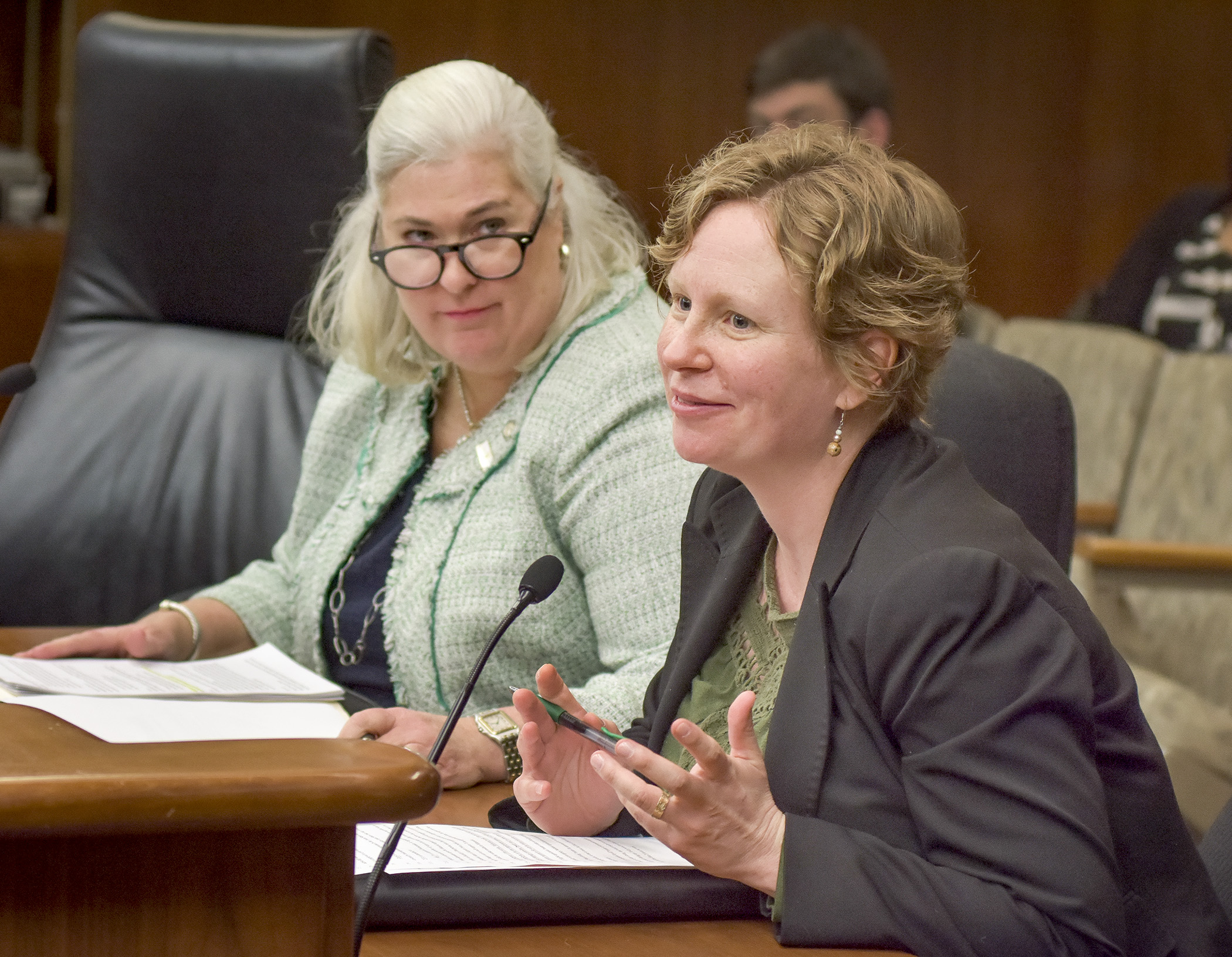Political workers would not qualify for dislocated worker aid

People who lose their jobs working for political organizations can now get assistance through the state’s Dislocated Worker Program.
HF1394, sponsored by Rep. Kelly Fenton (R-Woodbury), would remove such workers, including trackers and other campaign staff, from the pool of workers eligible for the program.
The House Job Growth and Energy Affordability Policy and Finance Committee approved the bill Wednesday on a divided voice-vote and sent it to the House Floor. The companion, SF1363, sponsored by Sen. Karin Housley (R-St. Marys Point), awaits action by the Senate Jobs and Economic Growth Finance and Policy Committee.
Under the bill, the statutory definition of “dislocated worker” would exclude “an individual who was an employee, at the time employment ceased, of a political committee, political fund, principle campaign committee, or party unit … or an organization required to file with the federal elections commission.”
Fenton said the inspiration for her bill was a news report about DFL political staffers seeking dislocated-worker benefits after the November 2016 election. She cited her own experience working for the Republican Party, where contracts made clear such positions were temporary.
She said it was a first for political staffers to band together as a group to pursue aid.
Fenton quoted from the program’s 2015 annual report to argue the DFL staffers should not qualify: “To be eligible for the DW program, an individual typically must qualify for UI. The DW program excludes temporary or seasonal workers, however, who make up a large portion of UI recipients.”
Rep. Jason Metsa (DFL-Virginia) asked if the bill would bar other workers, such as a state party chair. Fenton said it would if their jobs were included in the categories the bill defines.
The program’s director, Annie Welch, said of a group of 50 DFL staffers who were determined to be eligible, only two workers actually enrolled.
“The idea of creating a law for two people is ridiculous,” said Rep. Tim Mahoney (DFL-St. Paul).
Related Articles
Search Session Daily
Advanced Search OptionsPriority Dailies
Ways and Means Committee OKs proposed $512 million supplemental budget on party-line vote
By Mike Cook Meeting more needs or fiscal irresponsibility is one way to sum up the differences among the two parties on a supplemental spending package a year after a $72 billion state budg...
Meeting more needs or fiscal irresponsibility is one way to sum up the differences among the two parties on a supplemental spending package a year after a $72 billion state budg...
Minnesota’s projected budget surplus balloons to $3.7 billion, but fiscal pressure still looms
By Rob Hubbard Just as Minnesota has experienced a warmer winter than usual, so has the state’s budget outlook warmed over the past few months.
On Thursday, Minnesota Management and Budget...
Just as Minnesota has experienced a warmer winter than usual, so has the state’s budget outlook warmed over the past few months.
On Thursday, Minnesota Management and Budget...